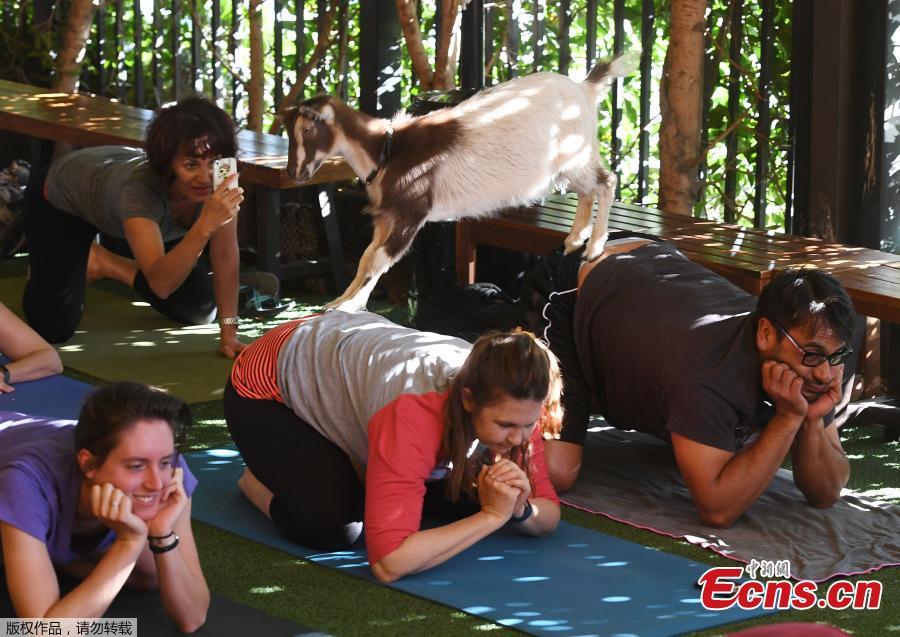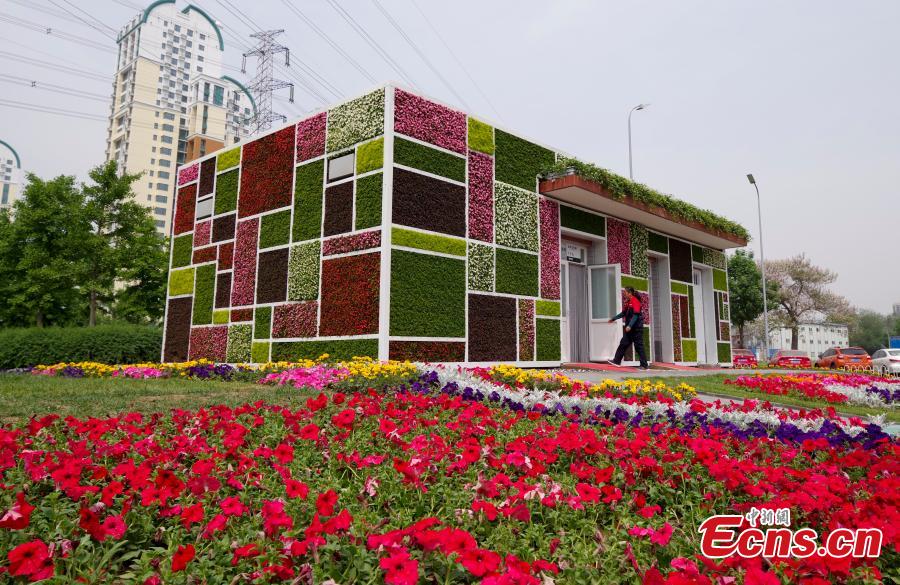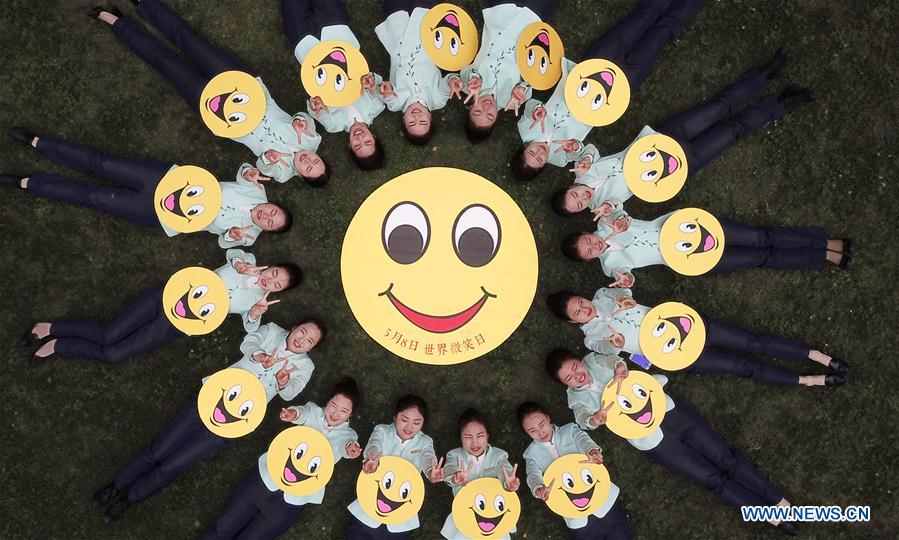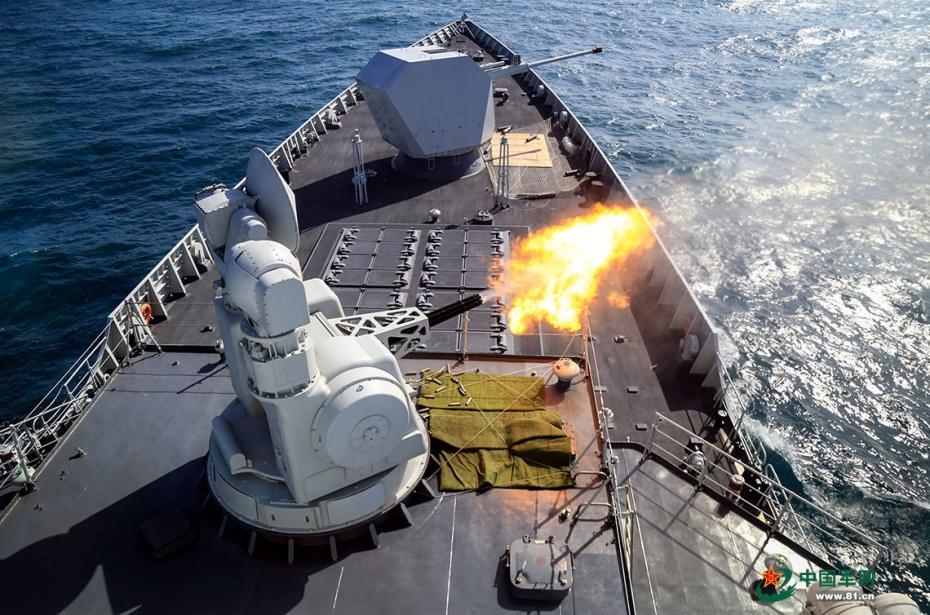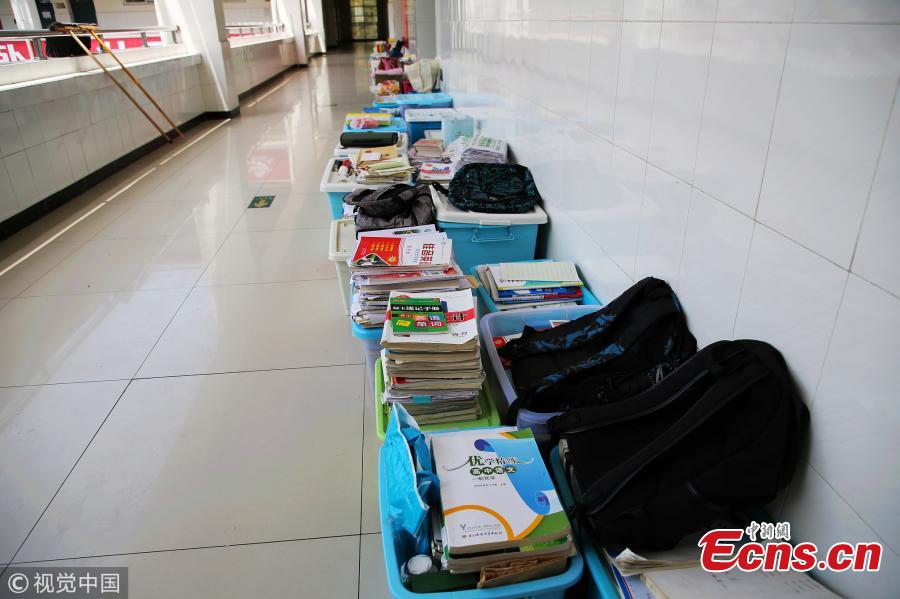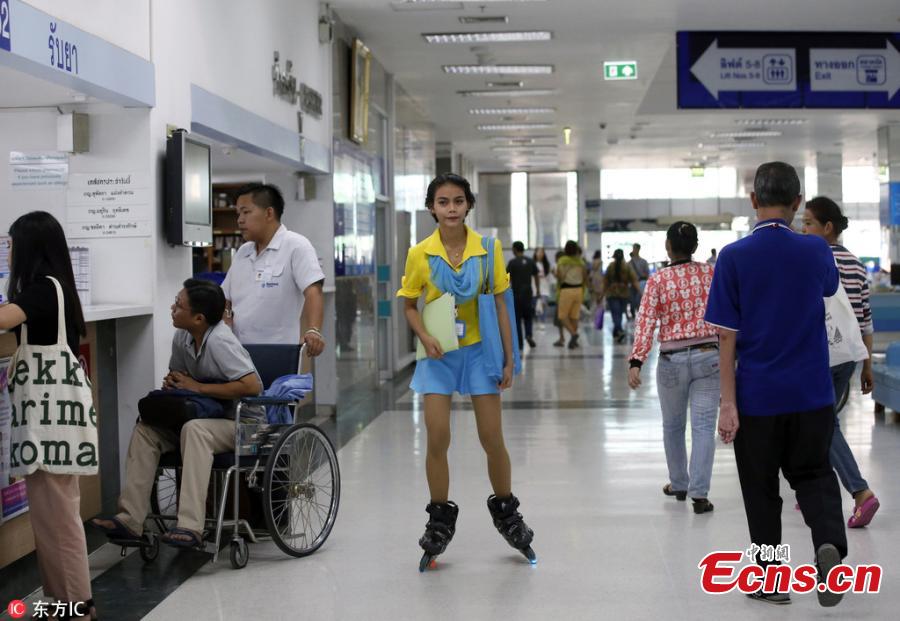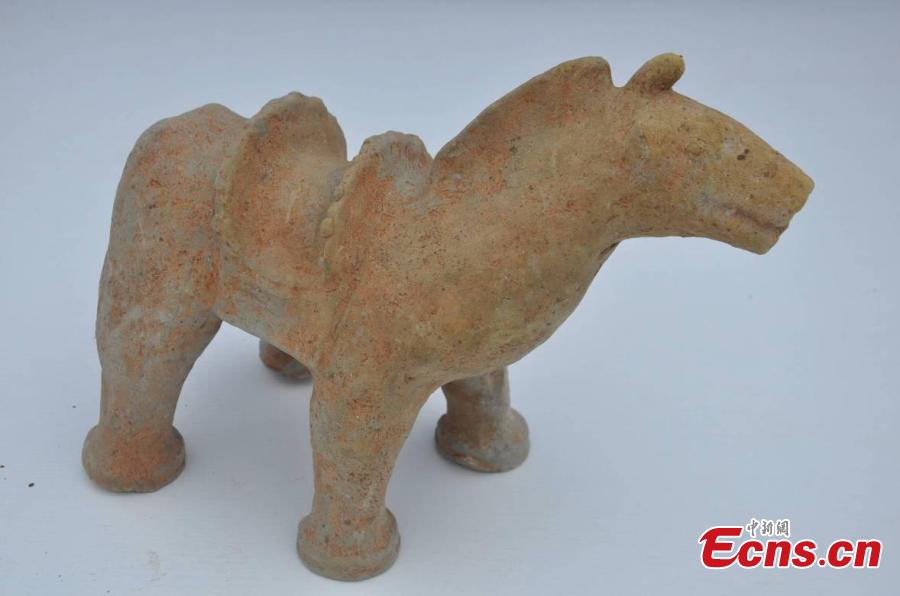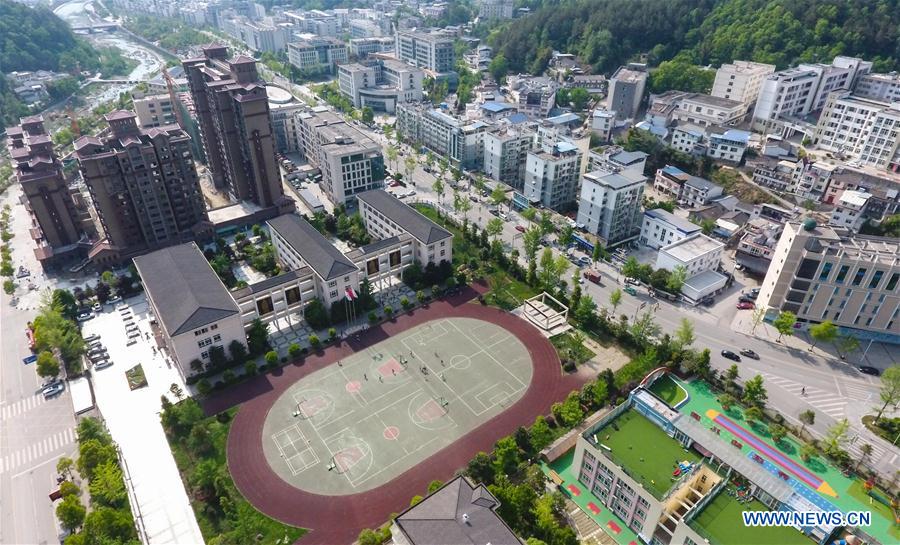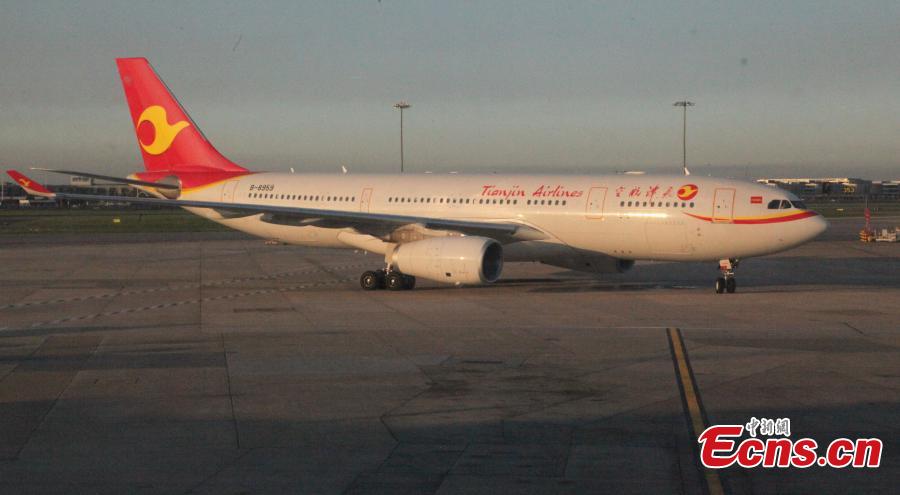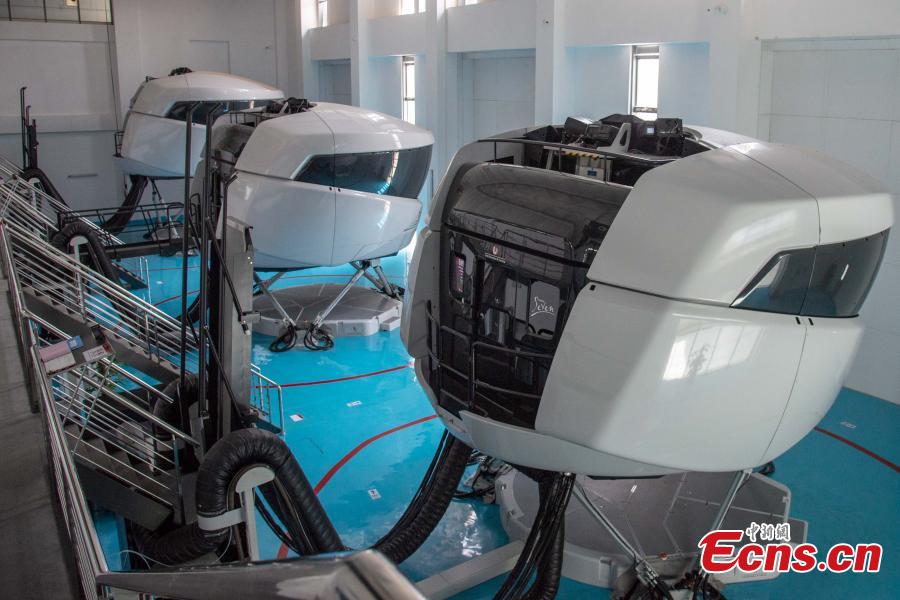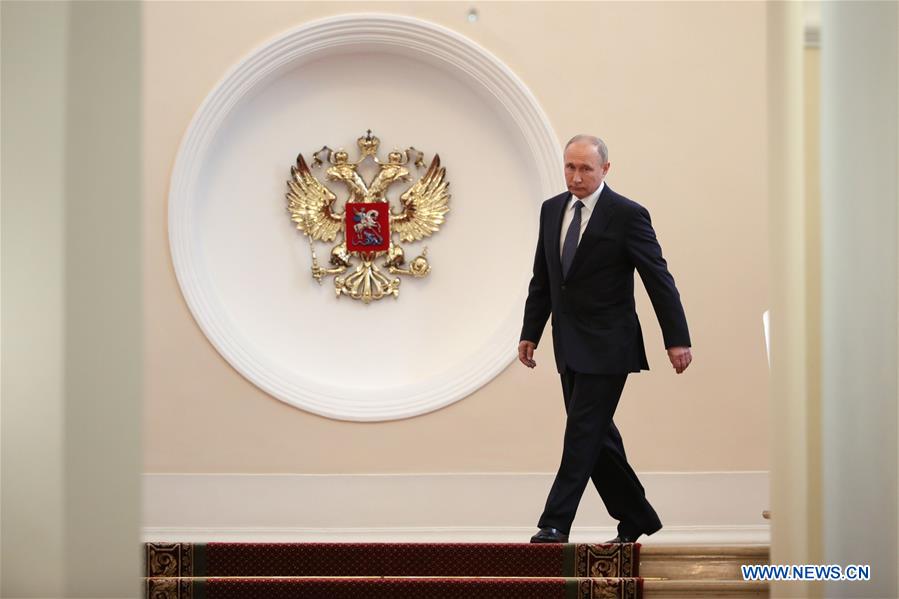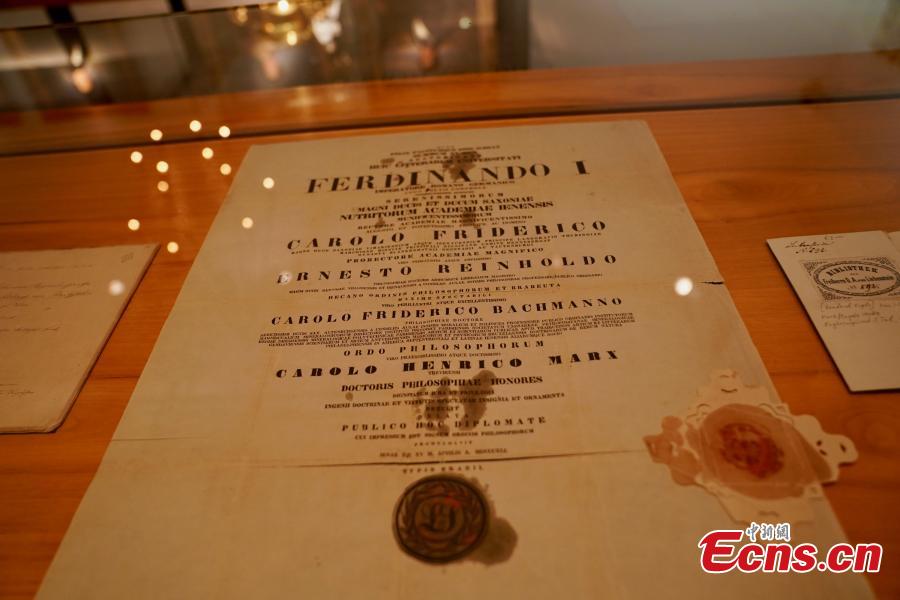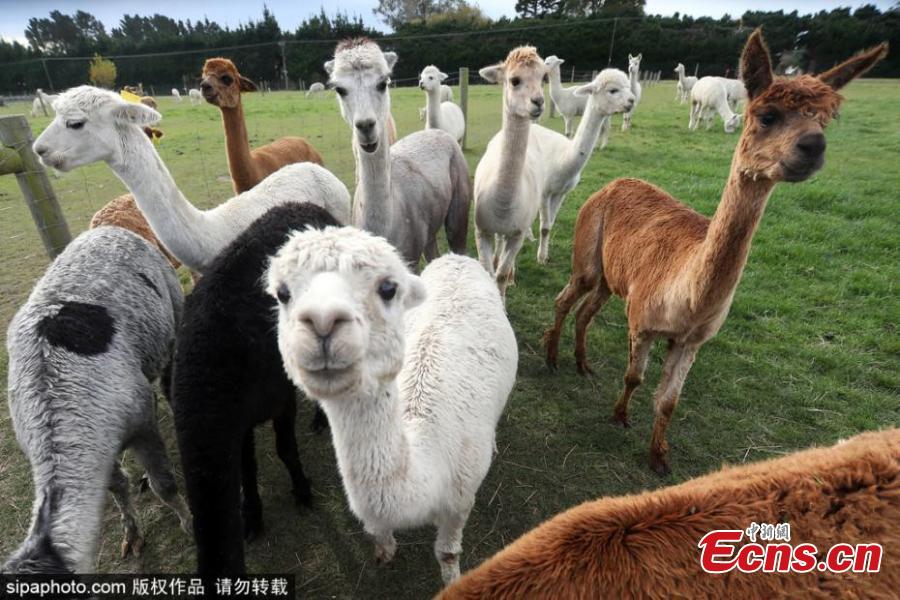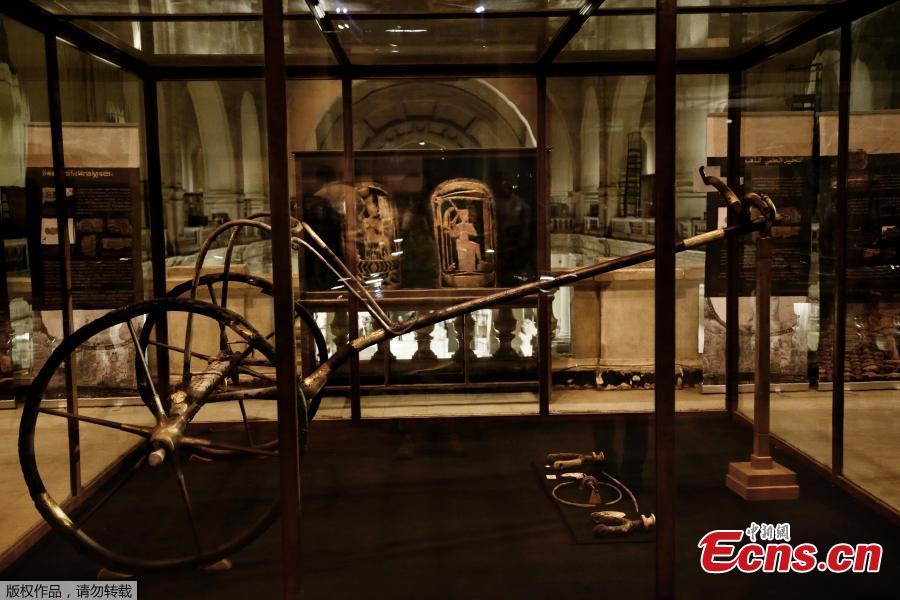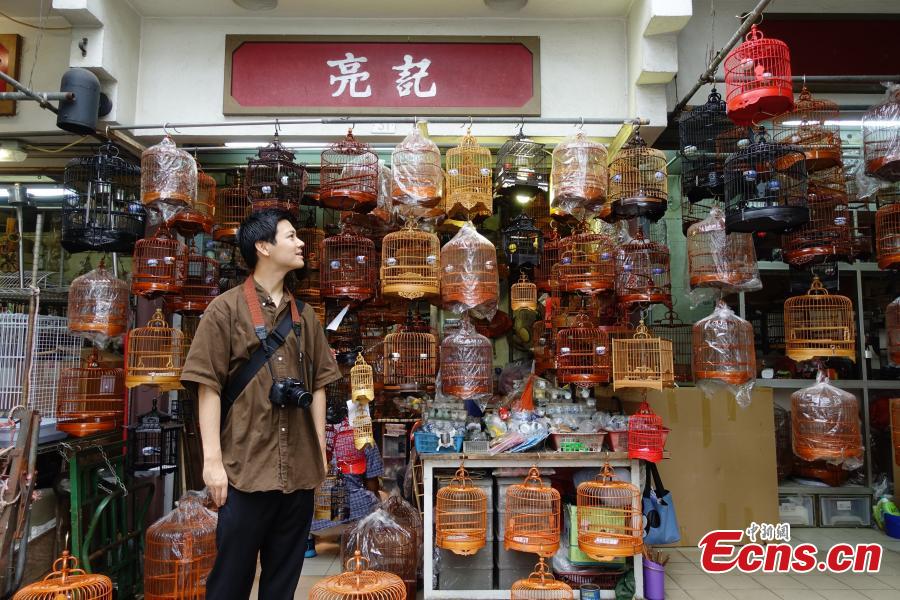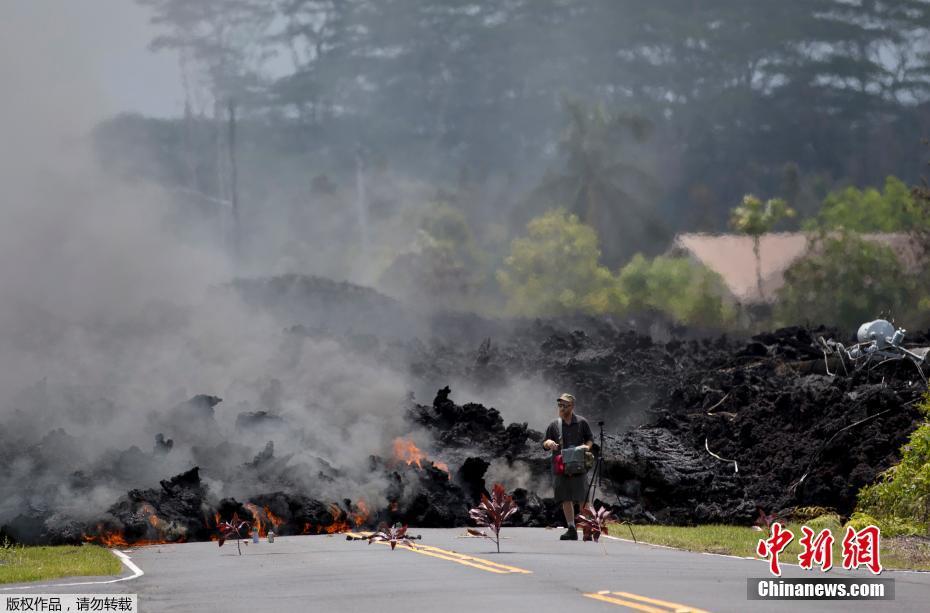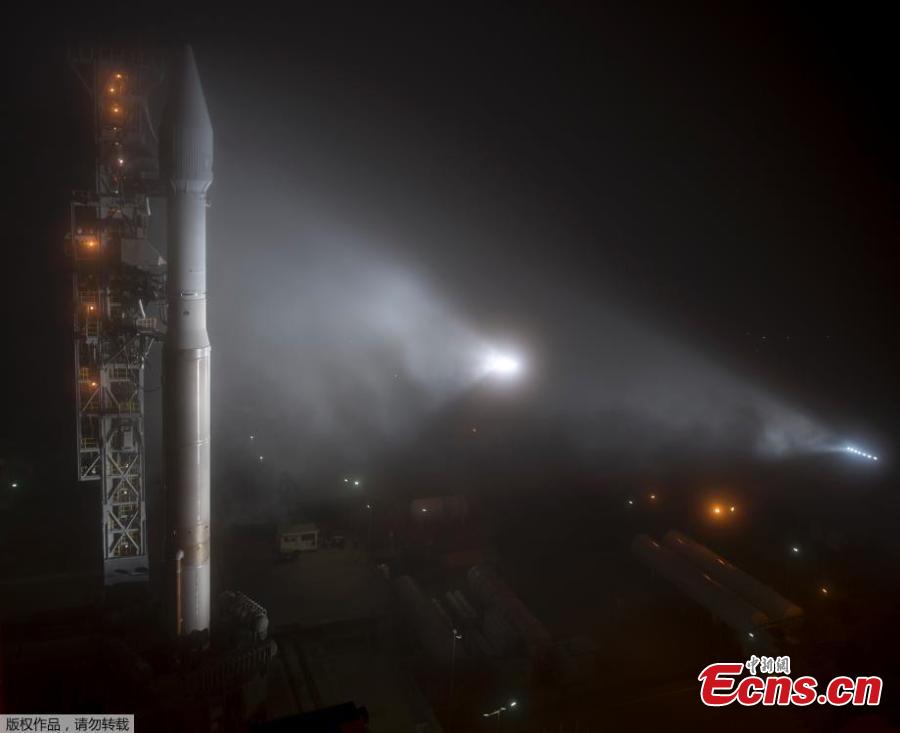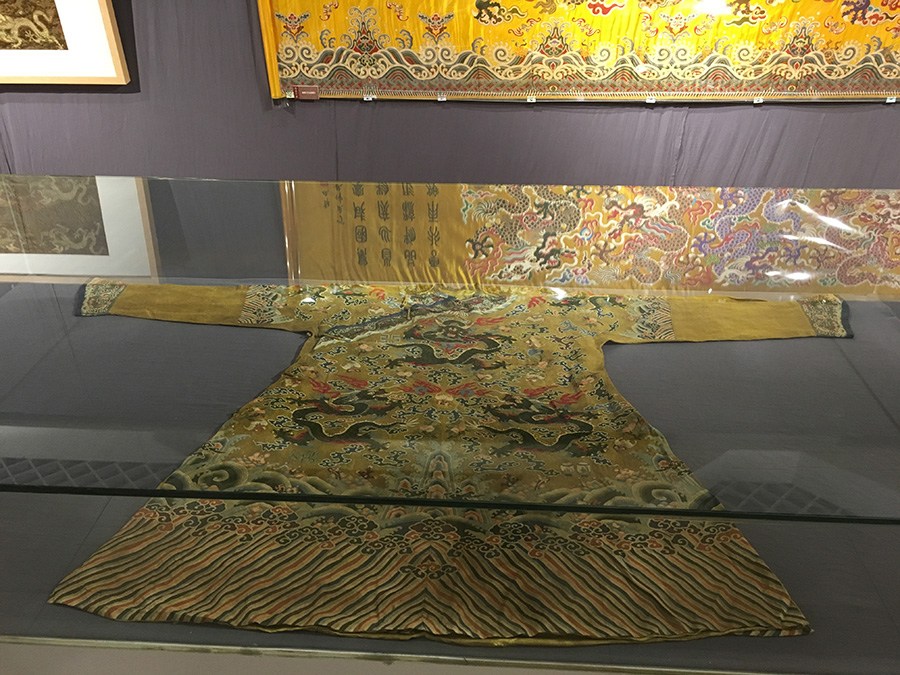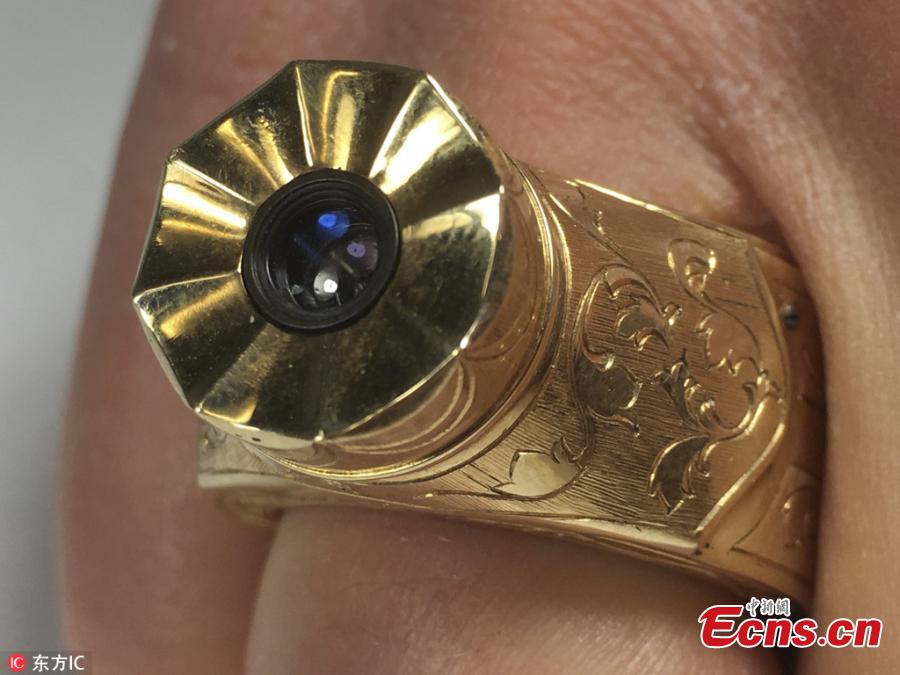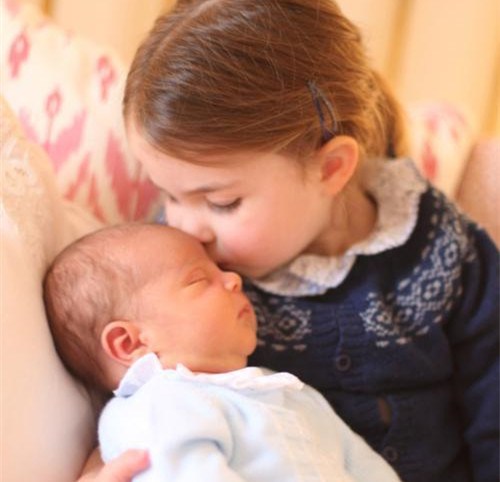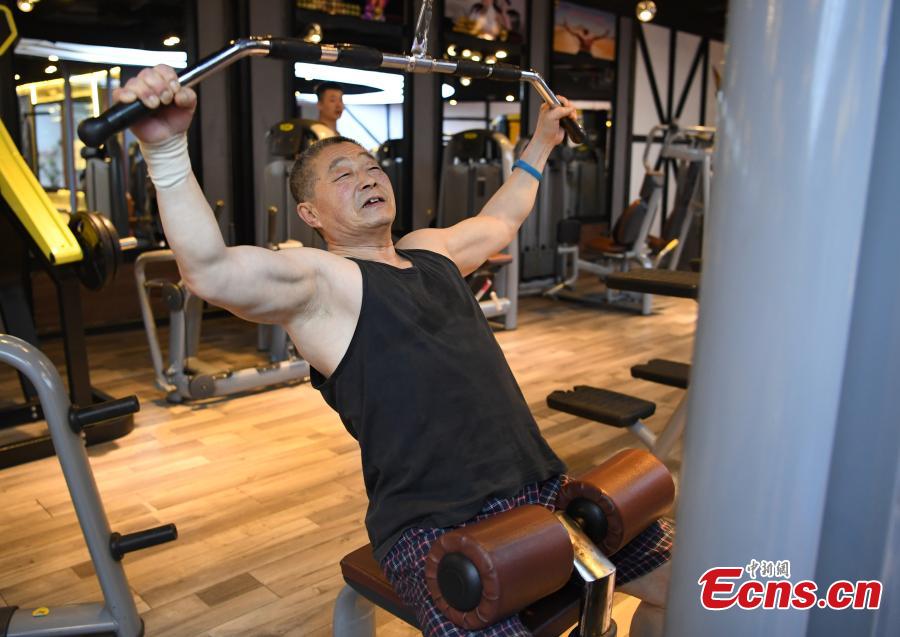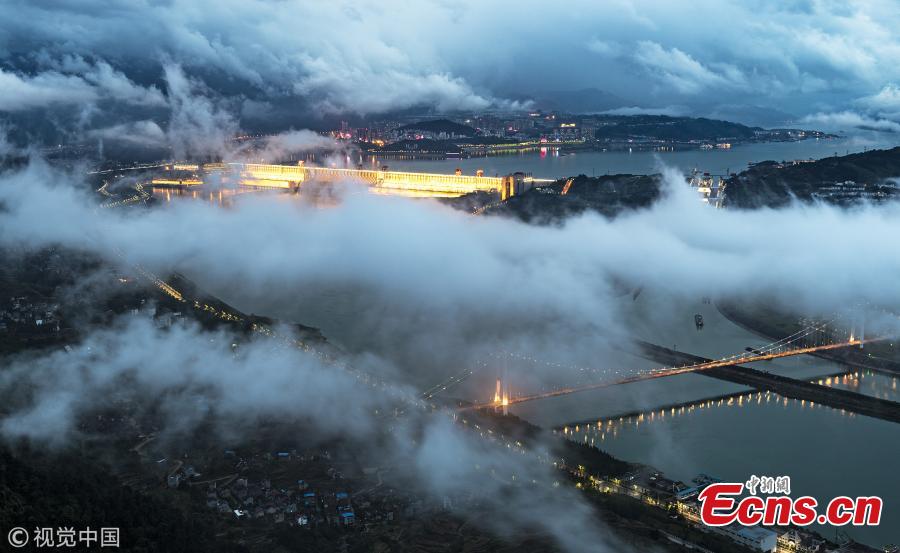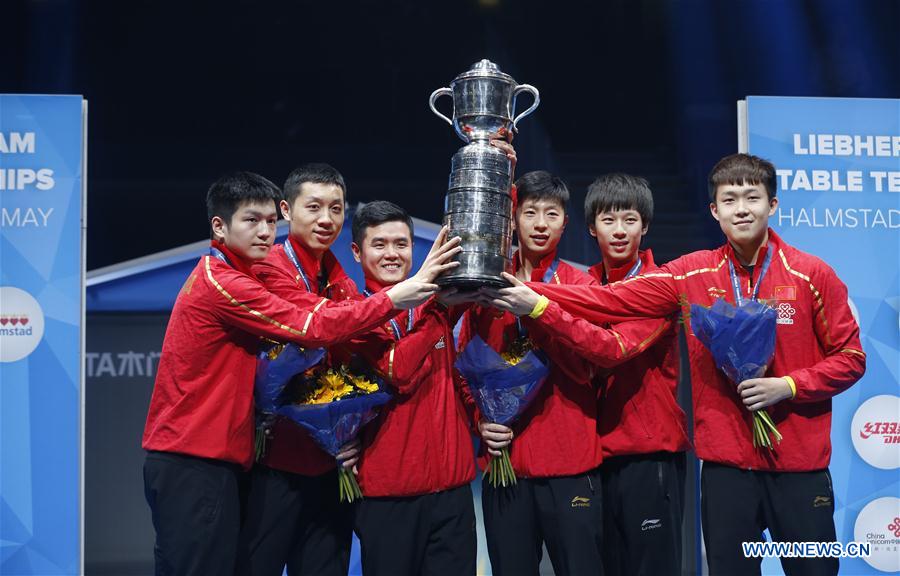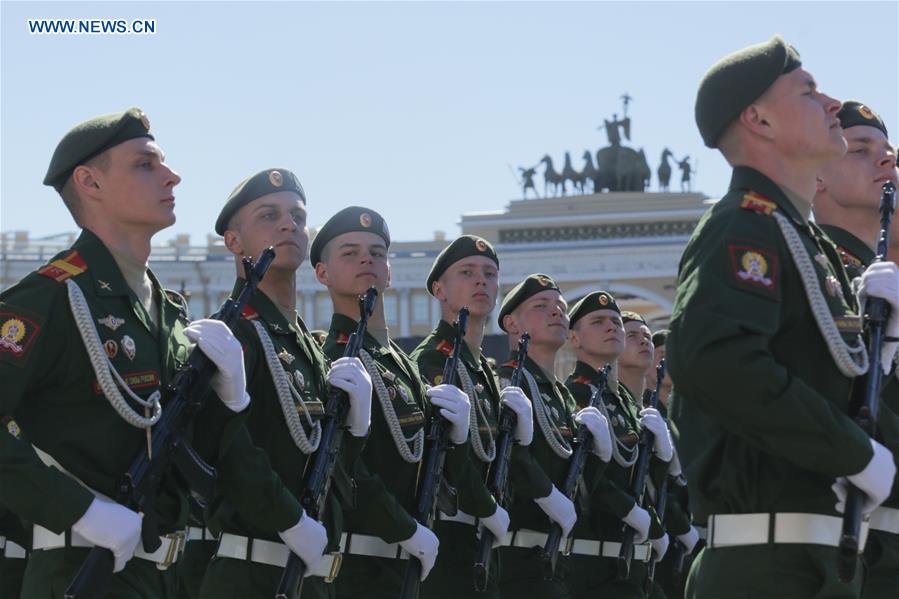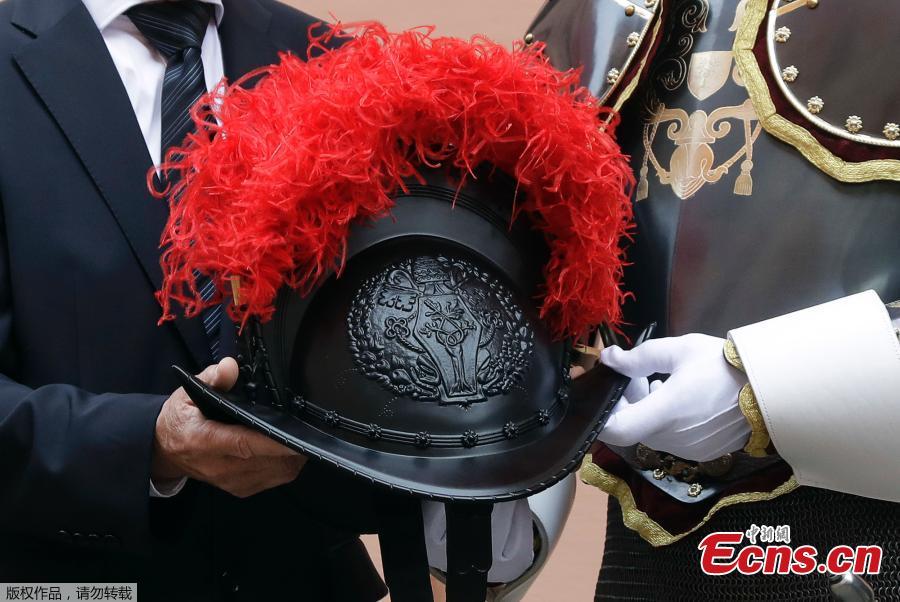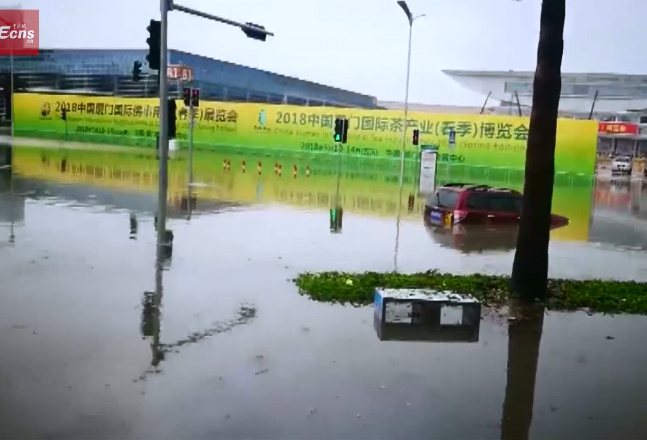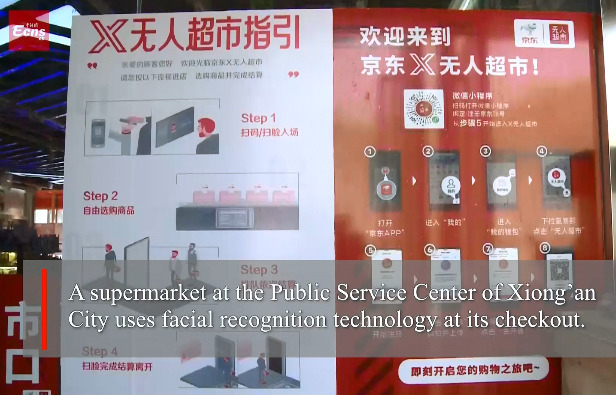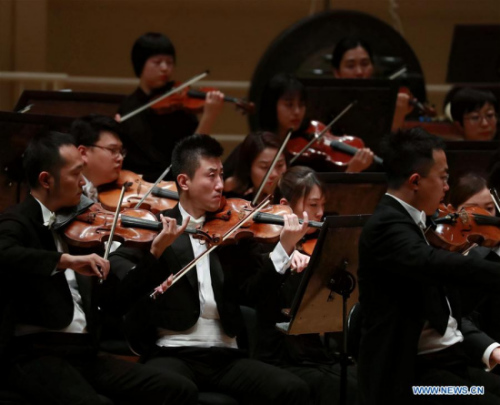
Members of the China National Center for the Performing Arts (NCPA) Orchestra perfom at the Symphony Center in Chicago, the United States, Oct. 28, 2017. (Xinhua/Wang Ping)
With the final note ending at the last movement of Johannes Brahms' last symphony, the music worked up to a rousing finale as the audience of more than 2,000 clapped and cheered for minutes in standing ovation at San Francisco's Davies Symphony Hall Sunday evening, witnessing a new chapter of China-America cultural exchange in years.
The presentation of Brahms' most captivating piece of Symphony No. 4 in E minor, Opus 98 by China National Center for the Performing Arts (NCPA) Orchestra is part of a series of musical feast offered by the 100-member strong Chinese music ensemble composed of the country's young talents, mostly in their 30s.
The Chinese artists, still young in age though, showcased their dexterity and highly professional skills when playing classical German music pieces following conductor Lu Jia, music director and chief conductor of the China NCPA Orchestra.
"Music has no boundaries and it is one of the important means of expressing human feelings and emotions. The language of music is the best and easiest way to communicate and integrate with people around the world," Lu told Xinhua in an interview hours before the concert began at the Davies Symphony Hall, the fifth leg of the NCPA's six-city U.S. tour aimed at promoting further understanding and cultural exchange between the Chinese and American peoples.
"Wherever you are, either in Europe, the United States, on their campuses, or in their hotels and even neighborhood, you earned respect from people around you because of the charming charisma of art and music," he said.
Lu's team attracted enthusiastic music fans in San Francisco, who packed the 2,600-seat Davies Symphony Hall to its full capacity and were eager to bask in the beauty of music.
Apart from Brahm's masterpiece, the NCPA orchestra played two pieces of Chinese music full of distinctive characteristics of the artists themselves. One of them was Luan Tan (Random Notes), a 20-minute long piece written by famous modern Chinese composer Chen Qigang, who had lived in France for more than 30 years.
The orchestra's presentation, in the first half of the concert, of Chen's musical piece gave the American audience insight into the ancient musical style in Chinese drama that originated in the 1600s, which was remarkably bolder, blunter and tended to be more virtuosic compared with other traditional Chinese music.
For the other Chinese music, well-known Chinese Pipa master Wu Man played the Concerto for Pipa with String Orchestra, written by contemporary American composer Lou Harrison who composed the piece specially for Wu when he was 70 years old.
Harrison, who had a very strong interest in Chinese music, was particularly noted for incorporating elements of the music of non-Western cultures into his work.
"I hold high respect for him (Harrison) because he accepted the challenge of writing a musical instrument that was not familiar to him in his 70s," Wu told Xinhua in a pre-concert interview Sunday.
"His music of the Pipa concerto is simple in rhythm but beautiful and melodic in nature," she added, explaining that Harrison's work was the simplest way to introduce traditional Chinese music, such as Pipa, a typical Chinese musical instrument, to Western audience.
She said it was the first time for a Chinese ensemble like the NCPA to play an American musical piece on the American soil, which carried a far-reaching significance.
The NCPA's Sunday concert, which created a perfect combination of Eastern and Western music throughout its two-hour performance, was a fascinating audio feast for local residents here in San Francisco.
Zhou Rong, a lawyer working in San Francisco, who brought her six-year-old son to the concert, said she wanted to have her kid get a chance to have a glimpse of traditional Chinese music.
"Although my kid has learned to play the piano and violin for more than one year without any knowledge about traditional Chinese music, I brought him here to let him feel in person the profound beauty rooted in traditional Chinese culture and music," she said.
A retired American psychologist, who asked not to be named, said she immigrated to the U.S. from Argentina more than 35 years ago and developed much interest in Chinese art and culture.
"My mom told me that when I was a small child, we had some Chinese and other Asian neighbors. They were very friendly in our community," she said.
She said that after retirement she read a lot of history and knew about Chinese art, culture and heritage. "I also have many Chinese friends around me now," she smiled.
She thought Sunday's concert was a good treat for her and she was willing to come over for the performance, she said.
Gary Grama, director of Clinical operation of Asahi Kasei Pharma America, a U.S. biotechnology company, said of the concert, "I enjoy the concert very much."
"It is very contemporary in many ways. It combines many traditional Chinese elements, so it's very very impressive, very very moving," he said.
"I was here at this same concert last year, and it was very beautiful," Grama added.
When asked why he developed interest in Chinese music, he said, "I think they are such a part of San Francisco, the Chinese culture here is really an important element of San Francisco, another cultural element here for the city," he explained.
San Francisco is the last but one stop of the NCPA's America tour that included their performances at the Symphony Center in Chicago on Oct. 28, the Carnegie Hall in New York on Oct. 30, the Kimmel Center in Philadelphia on Nov. 1, and the Memorial Hall in Chapel Hill Nov. 2.
The NCPA orchestra will proceed to give its last show at the Hill Auditorium in Ann Arbor on Nov. 7.









